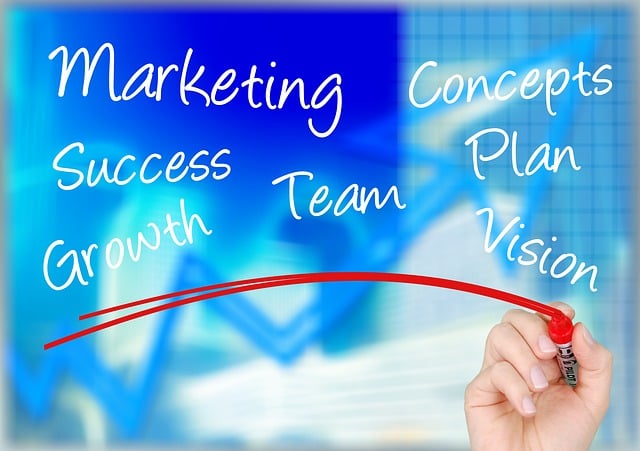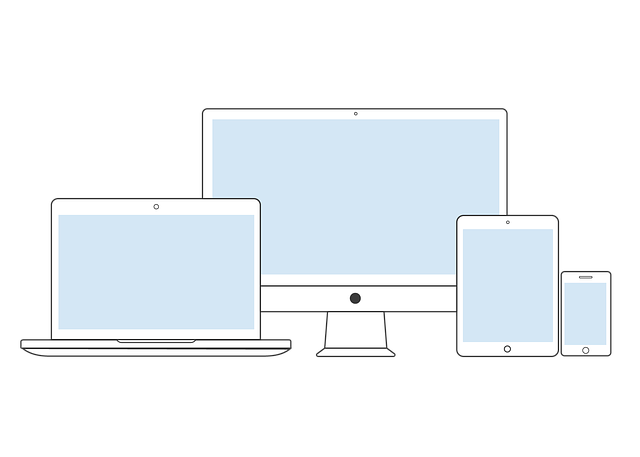Adopting AI coaching programs tailored for automotive service businesses can revolutionize marketing strategies. These AI solutions, powered by machine learning, offer valuable customer insights and personalized campaigns, improving reach and engagement. AI streamlines lead generation, saves resources, and strengthens client relationships. Implementation involves four steps: process assessment, tool selection, staff training, and gradual integration. Success is measured using KPIs across sales, customer satisfaction, operational efficiency, and ROI to justify the benefits of AI coaching for automotive service businesses.
In the digital age, car repair shops can leverage AI marketing strategies to enhance customer engagement and streamline operations. This article explores the transformative potential of Artificial Intelligence (AI) in automotive service, focusing on tailored coaching programs designed specifically for these businesses. We’ll guide you through a step-by-step implementation process and highlight key performance indicators to measure success. Discover how AI can optimize scheduling, personalized marketing, predictive maintenance, and more, revolutionizing the way car repair shops conduct business.
- Understanding AI Marketing for Car Repair Shops: Benefits and Potential
- Implementing AI Coaching Programs: A Step-by-Step Guide
- Measuring Success: Key Performance Indicators for AI in Automotive Service
Understanding AI Marketing for Car Repair Shops: Benefits and Potential

In today’s digital era, embracing AI marketing strategies can be a game-changer for car repair shops looking to enhance their customer reach and engagement. AI coaching programs specifically tailored for automotive service businesses offer a wealth of benefits that can revolutionize traditional marketing approaches. These programs leverage machine learning algorithms to analyze vast amounts of data, providing valuable insights into customer behavior, preferences, and trends in the automotive industry.
By implementing AI-driven strategies, car repair shops can personalize their marketing efforts, creating tailored campaigns for different customer segments. This level of customization allows for more effective communication, ensuring that each potential client receives relevant information about services they may require. Moreover, AI enables efficient lead generation and qualification, saving time and resources while increasing the chances of converting prospects into loyal customers.
Implementing AI Coaching Programs: A Step-by-Step Guide

Implementing AI Coaching Programs: A Step-by-Step Guide
1. Assess Current Processes: Begin by understanding your car repair shop’s existing operations, pain points, and goals. Identify areas where AI can provide the most significant impact, such as customer engagement, inventory management, or predictive maintenance.
2. Select Suitable AI Tools: Choose AI coaching programs tailored to automotive service businesses. Look for solutions that offer features like natural language processing for customer interactions, machine learning algorithms for predicting parts needs, and automated scheduling tools. Ensure these tools align with your shop’s specific requirements and budget.
3. Train and Integrate: Once selected, thoroughly train your staff on the new AI technologies. Emphasize how these tools will streamline processes, enhance efficiency, and improve customer satisfaction. Gradually integrate AI into daily operations, starting with pilot projects to identify and address any challenges before full-scale implementation.
4. Monitor and Adjust: Continuously monitor the performance of AI coaching programs using key performance indicators (KPIs). Analyze data to ensure the tools are delivering expected outcomes. Regularly review and adjust strategies as needed, refining the AI models based on real-world feedback and usage patterns.
Measuring Success: Key Performance Indicators for AI in Automotive Service

Measuring success is a critical aspect of implementing AI in car repair shops, as it helps to evaluate the effectiveness of marketing strategies and identify areas for improvement. Key Performance Indicators (KPIs) for AI in automotive service businesses should focus on several key areas. Firstly, tracking customer engagement metrics such as website visits, click-through rates, and time spent on pages can provide insights into the appeal and usability of AI-driven tools like chatbots or virtual assistants. Secondly, monitoring conversion rates—the percentage of website visitors who take a desired action, such as scheduling a service appointment—is vital to understanding how AI influences sales and bookings.
Additionally, tracking customer satisfaction scores through surveys or feedback forms can gauge the success of AI in enhancing the overall customer experience. Measuring the impact on operational efficiency, including task completion times and resource utilization, is also essential. Lastly, keeping an eye on return on investment (ROI) metrics ensures that AI coaching programs for automotive service businesses are delivering tangible benefits, such as increased revenue or cost savings, justifying their implementation.
AI marketing offers car repair shops a powerful tool to enhance their customer engagement and operations. By implementing AI coaching programs, these businesses can automate personalized communication, streamline scheduling, and provide valuable insights into customer behavior. This article has provided a roadmap for understanding the benefits, implementing effective strategies, and measuring success through key performance indicators. Embracing AI coaching programs is a game-changer for automotive service businesses aiming to stay competitive in today’s digital landscape.
